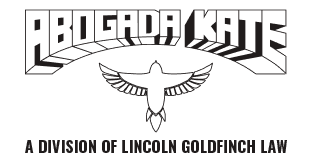Employment Immigration Attorney Helps Navigate An H-1B Visa
After years of honing your skills and talents, are you ready to transition to the next phase of your career in the United States? An Employment Immigration Attorney can simplify the H-1B Visa process, a pathway for highly skilled professionals seeking the American dream. Their guidance ensures you navigate this intricate journey successfully.
This article tackles the specifics of the H-1B program, outlining the eligibility criteria and the application procedure. Discover how a proficient attorney can support your application and propel you toward your career goals.

An Employment Immigration Attorney Assists Skilled Workers
Determining if your qualifications meet H-1B requirements and match the job offer is crucial for a successful application. An experienced immigration lawyer is a valuable ally for you and your employer when navigating this process. They provide essential information about the Visa, helping you understand what’s required and the next steps.
In H-1B petitions, the employer initiates the Visa application. However, your involvement and cooperation are equally important. An experienced attorney confirms that your qualifications fit the program and helps establish eligibility. They also assist in applying for your Visa to ensure that your career goals are realized smoothly.
Consulting an immigration attorney from the outset enables you to make informed decisions about your career path in the U.S. They guide you through all the details necessary to navigate the H-1B Visa process effectively.
Comprehensive Guide To H-1B Visa
The H-1B program is a nonimmigrant Visa classification that allows U.S. companies to employ foreign workers in specialty occupations. It enables employers to recruit overseas employees with skills not readily available in the American workforce.
Fields commonly covered in this Visa category include information technology, engineering, physical and social sciences, biotechnology, and healthcare. The U.S. Citizenship and Immigration Services (USCIS) outlines rigid eligibility criteria to screen applicants effectively.
Eligibility Criteria
Specialty occupations need practical and theoretical applications of highly technical knowledge. They generally require a bachelor’s degree or equivalent in a specific field. In more intricate cases, some roles are so complex that only individuals with specialized skills or degrees can fulfill them.
To qualify for an H-1B Visa, at least one of these criteria must be met:
- You hold a U.S. bachelor’s or higher degree required for the job from an accredited college or university.
- You possess a foreign degree equivalent to a U.S. bachelor’s or higher from an accredited college or university.
- You have a state license, registration, or certification that authorizes you to fully practice the job immediately in the intended state of employment.
These requirements highlight the complexity and technical education or training needed for specialty occupations. USCIS has established subcategories within the H-1B classification to differentiate other applicants from the rest.
Subcategories
The Visa program includes specific subcategories designed to accommodate different professional backgrounds. These ensure that a wide range of skilled workers can access opportunities in the U.S. and leverage their knowledge in the American market.
H-1B1: Skilled Workers From Chile & Singapore
The H-1B1 Visa enables U.S. companies to recruit highly skilled nonimmigrant workers from Singapore and Chile in specialty occupations. Currently, annual quotas limit the issuance of such Visas to 6,800 qualifying foreign workers, with 1,400 for Chile and 5,400 for Singapore.
H-1B2: DOD Research & Development Project Worker
This classification pertains to individuals engaged in cooperative research and development projects and co-production efforts with the U.S. Department of Defense (DOD). Such projects typically require substantial skills in fields crucial to national defense.
In these roles, specialty training or progressive experience can sometimes substitute for a formal degree. This alternative pathway involves relevant work background and recognition within your field. However, it is less common, so it is advisable to consult an immigration attorney to determine eligibility.
H-1B3: Fashion Model
This unique category is designed for fashion models of distinguished merit and ability. Applicants must either have a national or international distinction or be entering the U.S. for a prominent fashion model position. Sponsoring employers must prove the model’s essential role in fashion shows, advertisements, or other events.
Identifying the correct category for your skills and qualifications can help you better position yourself for a successful H-1B Visa application. Beyond meeting eligibility, you must also qualify within the annual quota.
Annual Cap & Exemptions
The H-1B Visa program has an annual cap of 65,000 Visas per fiscal year, excluding those allocated for the H-1B1 subcategory. An additional pool of 20,000 Visas is specifically for those who earned a master’s degree or higher from a U.S. institution.
Furthermore, extensions for individuals already in H-1B status are cap-exempt. Employers, including nonprofit research organizations, institutions of higher education, and governmental research organizations, are also beyond the scope of the cap.
By getting familiar with the program’s requirements and nuances, you will be well on your way to navigating the application process confidently. It can boost your chances of starting your dream job in the United States.
The General Application Process
Applying for the H-1B Visa requires your employer to apply with USCIS on your behalf. Therefore, securing a job offer from a willing U.S. employer is crucial. To successfully obtain the Visa, you and your employer will typically follow this application process:
Step 1: File The LCA
Prospective employers must file Labor Condition Applications (LCA) with the Department of Labor (DOL). It ensures their compliance with employment conditions for H-1B Visa holders.
The conditions include paying at least the prevailing wage, confirming your employment won’t harm U.S. workers’ conditions, and verifying that there is no strike or lockout in your job category. Employers must also notify U.S. workers about the LCA filing by posting notices or informing the union representative.
Step 2: Submit The H-1B Petition
Once the LCA is certified, your employer submits Form I-129, Petition for a Nonimmigrant Worker, to USCIS. This petition must include supporting documents such as educational degrees, training certificates, and resumes. Moreover, the petition package should contain the DOL-certified LCA, necessary filing fees, and a comprehensive job description.
Step 3: Undergo Change Of Status Or Consular Processing
After the petition is approved, you have two options to proceed, depending on whether you are already in the United States.
If you are in the U.S. under a different Visa type, you may qualify to change your status to H-1B without leaving the country. To do so, you must submit Form I-539, Application to Extend/Change Nonimmigrant Status, to USCIS.
If you are outside of the U.S., you must undergo consular processing. It entails completing Form DS-160, Online Nonimmigrant Visa Application. After submitting the form, you must attend a Visa interview at a U.S. embassy or consulate in your home country or another country where you are legally present.
Step 4: Receive USCIS Approval
If your application was for a change of status, USCIS issues Form I-797, Approval Notice, to your employer. This document confirms your H-1B Visa status and authorizes you to work for your sponsor in the U.S.
If you apply through consular processing, you will get an H-1B Visa stamp in your passport upon approval. A Customs and Border Protection (CBP) officer verifies your documents at the U.S. port of entry. If granted entry, you receive a Form I-94, Arrival/Departure Record, indicating your authorized period of stay under H-1B status.
While the application process is demanding, the benefits of a successful application are worth the effort. Partnering with a skilled immigration lawyer can help you manage the complexities and maximize your Visa’s advantages.
Employment Immigration Attorney Helps Maximize H-1B Benefits
The H-1B Visa offers many benefits for foreign workers in the United States. With proper legal assistance from an employment immigration lawyer, you can enhance your chances of reaping these rewards.
Pathway To Permanent Residency
The H-1B Visa is dual intent, which means you can apply for a Lawful Permanent Resident (LPR) status while on a nonimmigrant Work Visa. This pathway is possible when you reach the maximum stay of six years.
An experienced attorney can guide you through transitioning from temporary to permanent residency. They help you navigate the necessary paperwork and legal requirements from start to finish.
Visa Portability
H-1B Visa holders enjoy the advantage of Visa portability. It allows you to change employers without losing your Visa status, provided the new employer petitions you for another H-1B Visa. An immigration attorney ensures your work transition is smooth and uninterrupted and files your new petition correctly and promptly.
Family Benefits
Your spouse and unmarried children below 21 can join you in the U.S. under the H-4 Visa category. Your spouse may eventually apply for work authorization when you pursue employment-based LPR status. An immigration lawyer can help file the necessary applications and advise on the best strategies for maintaining your family’s lawful stay.
Even after securing an H-1B Visa, the support of an employment immigration attorney remains crucial. Choosing a trusted name in the legal field is essential to ensure ongoing support and success.
Abogada Kate Advocates For Your U.S. Employment

The road to U.S. employment through the H-1B Visa demands proper guidance and dedication. At Abogada Kate, you can find a clear path to securing a thriving career on American soil. Our extensive experience in employment-based immigration law equips us to handle your situation with precision and care.
Our legal team thoroughly guides you through the application process, ensuring your eligibility and alignment with USCIS standards. Whether in IT, engineering, healthcare, or another specialty, we ensure your application effectively highlights your strengths and skills.
With us by your side, navigating the Visa process becomes a manageable and less stressful experience. Our dedication to your success empowers you to achieve your dream of working and living in the United States.
Summary
The H-1B Visa program is a pivotal opportunity for skilled foreign professionals to work in the United States. This nonimmigrant Visa caters to specialty occupations, including IT professionals, engineers, and scientists. The program extends to distinguished fashion models and workers in Department of Defense research and development projects.
Successfully navigating the intricate application process requires close collaboration among you, your prospective employer, and an experienced employment immigration attorney. Reputable law firms like Abogada Kate guide you through this challenging yet rewarding journey. Our commitment is to assist you in achieving your career goals in the United States.


